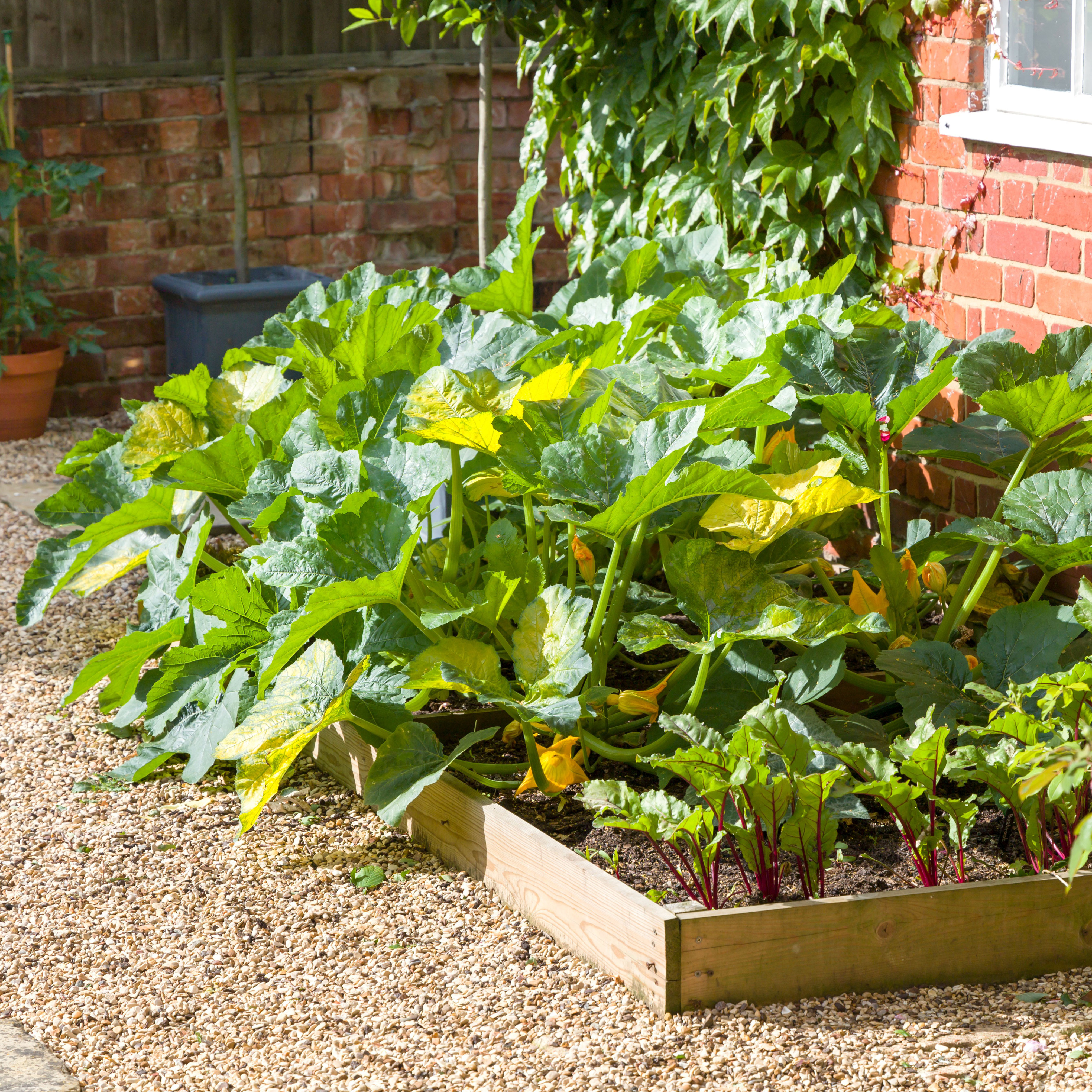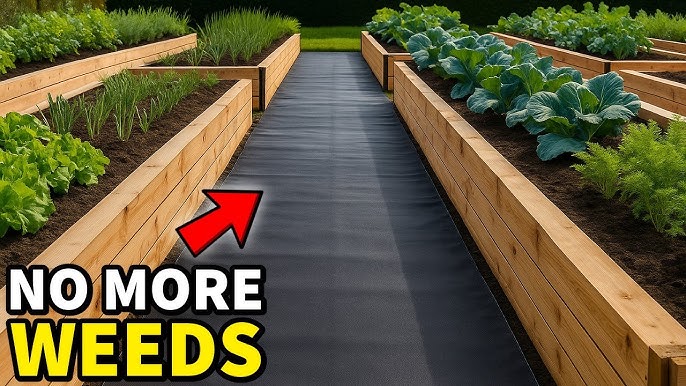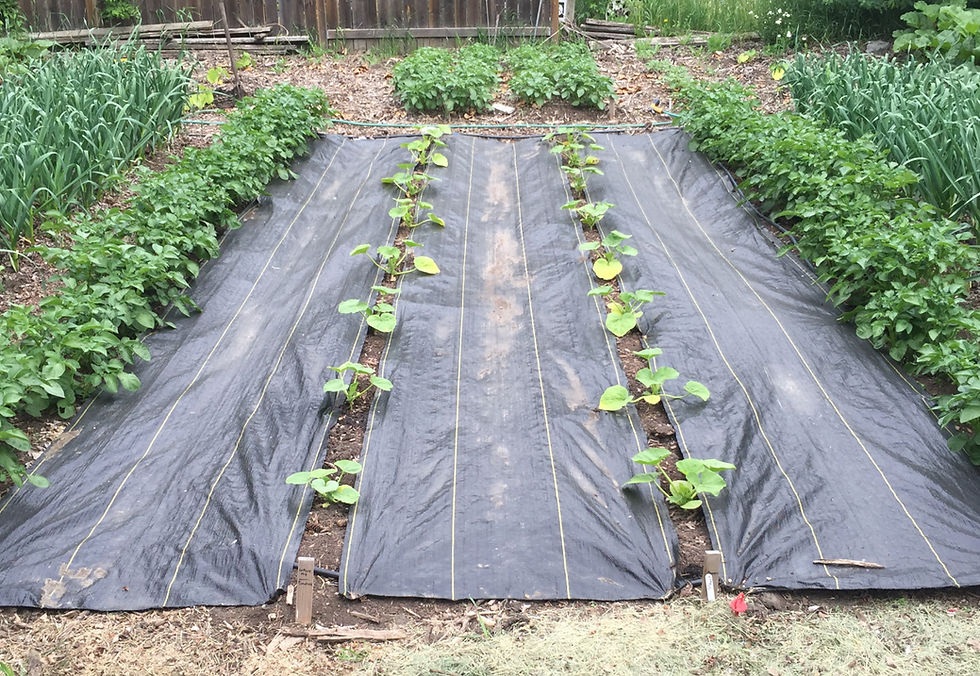Are weeds taking over your vegetable garden and stealing nutrients from your plants? You want a simple solution that keeps weeds out without harming your veggies.
But can you use weed block fabric in your vegetable garden safely and effectively? This question is important because the wrong choice could hurt your plants or make gardening harder. You’ll discover how weed block works, whether it’s a good fit for your veggies, and smart tips to keep your garden healthy and thriving.
Keep reading to protect your garden and enjoy a better harvest!

Credit: www.reddit.com
Weed Block Basics
Weed block helps control unwanted plants in your vegetable garden. It saves time and effort in weeding.
Using the right weed block can protect your vegetables and improve garden health.
What Is Weed Block?
Weed block is a material placed on soil to stop weeds from growing. It lets water and air pass through but blocks sunlight to weed seeds.
Gardeners use weed block to reduce the need for pulling weeds by hand. It helps keep the soil moist and clean.
Types Of Weed Barriers
There are several types of weed barriers used in vegetable gardens. Each type works differently to control weeds.
- Plastic Sheeting:Blocks all light and water. It stops weeds but may harm soil health.
- Fabric Weed Barrier:Made from woven material. Allows water and air through but blocks weeds.
- Mulch:Organic material like wood chips or straw. It covers soil to stop weeds and adds nutrients.
- Newspaper or Cardboard:Natural and cheap. It decomposes and improves soil but needs replacement.
| Type | Allows Water | Reusable | Soil Friendly |
| Plastic Sheeting | No | Yes | No |
| Fabric Weed Barrier | Yes | Yes | Yes |
| Mulch | Yes | No | Yes |
| Newspaper/Cardboard | Yes | No | Yes |
Benefits For Vegetable Gardens
Using weed block in a vegetable garden can help keep weeds under control. It also helps the soil stay moist and supports healthy plant growth.
These benefits make gardening easier and improve the chance of a good harvest.
Weed Control Efficiency
Weed block fabric stops weeds from growing by blocking sunlight. Without light, weeds cannot sprout or grow.
This reduces the need to pull weeds by hand or use chemicals in your vegetable garden.
- Blocks sunlight from reaching weed seeds
- Prevents weed roots from spreading
- Reduces garden maintenance time
Soil Moisture Retention
Weed block fabric helps keep soil moist by reducing water evaporation. Moist soil is good for vegetable roots.
This means plants need less frequent watering and stay healthy during dry periods.
- Slows down water loss from soil
- Maintains stable soil temperature
- Supports deeper root growth
Improved Plant Growth
By controlling weeds and keeping soil moist, weed block fabric helps vegetables grow better. Plants can get more nutrients without competition.
Healthy plants produce more fruits and vegetables for your garden.
- Reduces competition for nutrients
- Encourages stronger root systems
- Leads to higher vegetable yields
Potential Drawbacks
Using weed block fabric in a vegetable garden may seem helpful. It stops weeds from growing. But it can cause some problems too.
This section explains the possible drawbacks to consider before using weed block in your garden soil.
Soil Health Concerns
Weed block fabric can limit the natural flow of air and water in the soil. This can make the soil dry and hard. Plants need loose soil to grow well.
It may also reduce the amount of organic matter that breaks down in the soil. This slows down the natural process that feeds plants.
Impact On Soil Microorganisms
Soil contains many tiny living things called microorganisms. They help plants get nutrients and stay healthy. Weed block fabric can block sunlight and air, which these microorganisms need.
- Reduces oxygen in the soil
- Limits moisture movement
- Blocks natural sunlight
- Hinders beneficial bacteria and fungi
Root Growth Restrictions
| Effect | Description |
|---|---|
| Root Barrier | Weed block fabric can stop roots from spreading out. |
| Shallow Roots | Plants may develop shallow roots, making them weak. |
| Poor Nutrient Uptake | Restricted roots absorb fewer nutrients and water. |
Choosing The Right Weed Block
Using a weed block in your vegetable garden can help keep unwanted plants away. It can make gardening easier and protect your vegetables.
Choosing the right weed block is important for your garden’s health. There are different options to consider.
Material Options
Weed blocks come in many materials. Common choices include plastic, fabric, and paper. Each material has its own benefits.
- Plastic is strong and lasts long.
- Fabric allows air and water to pass through.
- Paper is good for the environment.
Permeability And Breathability
Permeability is how well air and water pass through the weed block. Breathable materials let your plants breathe and get water.
Fabric weed blocks are very breathable. Plastic ones may not let as much air and water through.
Durability Factors
Durability is how long the weed block will last. Strong materials can stay useful for many seasons.
Plastic weed blocks are very durable. Fabric ones might need to be replaced more often.
Proper Installation Tips
Using weed block fabric in your vegetable garden can help reduce unwanted weeds. Proper installation ensures the fabric works well and lasts longer. Follow these tips for the best results.
Careful preparation and correct placement make your garden healthier and easier to maintain. Let’s look at the key steps to install weed block fabric properly.
Preparing The Garden Bed
Clear the garden bed of all weeds, roots, and debris before laying the fabric. Smooth the soil surface to avoid bumps under the fabric. This helps the fabric lie flat and prevents tears.
- Remove all weeds and roots by hand or with a hoe.
- Rake the soil to level the surface.
- Water the soil lightly to settle it.
- Make sure the soil is dry before placing the fabric.
Cutting And Laying The Fabric
Measure the area carefully and cut the fabric with scissors or a utility knife. Leave extra fabric around the edges for securing. Lay the fabric flat over the soil without stretching it.
| Tip | Reason |
|---|---|
| Cut fabric 6 inches larger than bed size | Allows overlap for better coverage |
| Overlap fabric edges by 3 to 4 inches | Prevents weeds from growing between sheets |
| Do not stretch fabric during placement | Prevents tears and fabric pulling away |
| Cut holes only where plants will grow | Keeps weed control intact elsewhere |
Securing And Covering
Secure the fabric edges with garden staples or pins to keep it from moving. Cover the fabric with mulch or soil to protect it from sun damage and add weight.
- Place staples every 12 inches along edges and seams.
- Use mulch like wood chips or straw to cover fabric.
- Water the mulch lightly to help it settle.
- Check the fabric regularly for loose spots or damage.

Credit: www.gardeningknowhow.com
Maintenance And Monitoring
Using weed block fabric in a vegetable garden can be a good way to control weeds. Proper maintenance and monitoring help keep your garden healthy.
Regular checks ensure that the weed block fabric works effectively. Let’s look at some key areas to focus on.
Checking For Weed Growth
Weeds can sometimes grow despite the fabric. Check regularly for any signs of weeds poking through.
- Inspect edges where weeds might sneak in.
- Look for gaps or tears in the fabric.
- Remove any weeds that appear promptly.
Handling Fabric Damage
Fabric can get damaged over time. It’s important to handle any issues quickly to maintain its effectiveness.
Use a garden staple or peg to secure any loose areas of the fabric.
Seasonal Adjustments
Each season brings different challenges for your garden. Adjusting the weed block fabric can help meet these needs.
| Season | Action |
| Spring | Check for winter damage and repair |
| Summer | Ensure fabric is secure during growth |
| Autumn | Remove fallen leaves to prevent decay |
| Winter | Consider adding mulch for extra protection |
Alternatives To Weed Block
Weed block fabric is often used to keep weeds away from garden beds. But some gardeners worry about using it in vegetable gardens. It can stop water and air from reaching the soil well.
There are other ways to control weeds without using weed block. These alternatives help your vegetables grow healthy and strong.
Mulching Options
Mulching covers the soil to block sunlight from weeds. It also keeps moisture in the soil and adds nutrients as it breaks down.
You can use organic mulches like straw, grass clippings, or shredded leaves. These materials improve the soil and are safe for vegetables.
- Straw mulch keeps soil cool and moist.
- Grass clippings add nitrogen to the soil.
- Shredded leaves improve soil structure over time.
- Wood chips work well but break down slowly.
Natural Weed Control Methods
Natural weed control uses simple tools and techniques to reduce weeds. You can hand-pull weeds before they spread. This stops them from taking nutrients from your vegetables.
Using tools like hoes can cut weeds just below the soil surface. This method is quick and does not harm your plants. You can also use flame weeding carefully to burn weeds without chemicals.
- Hand-pulling removes weeds gently.
- Hoing cuts weeds at the roots.
- Flame weeding burns young weeds safely.
- Watering only your plants stops weed growth.
Crop Rotation Benefits
Crop rotation means planting different vegetables in different spots each season. This keeps the soil healthy and stops weeds from growing strong.
Rotating crops can reduce pests and diseases. Some plants also help improve soil nutrients, making your garden more productive without weed blocks.
- Breaks weed growth cycles.
- Improves soil nutrients naturally.
- Reduces pests and diseases.
- Boosts vegetable growth and yield.

Credit: www.youtube.com
Frequently Asked Questions
Can You Use Weed Block Fabric In Vegetable Gardens?
Yes, weed block fabric can be used in vegetable gardens. It helps control weeds while allowing water and air to reach plants. Choose a breathable, UV-resistant fabric to protect young vegetable roots and maintain healthy soil conditions.
Will Weed Block Harm Vegetable Plant Growth?
Weed block fabric won’t harm vegetable plants if used properly. Ensure it is placed around plants, not covering stems or leaves. Proper installation allows water and nutrients to reach roots, supporting healthy growth and reducing weed competition.
How Long Does Weed Block Last In Gardens?
Weed block fabric typically lasts 3 to 10 years, depending on material and exposure. UV-resistant fabrics last longer. Over time, it may degrade, so check annually and replace if damaged to maintain weed control efficiency.
Can I Plant Vegetables Directly Through Weed Block?
Yes, you can plant vegetables through weed block by cutting holes for seedlings. This method minimizes weed growth around plants while allowing roots to access soil and nutrients effectively for healthy development.
Conclusion
Weed block can help reduce weeds in your vegetable garden. It stops sunlight from reaching weed seeds. But choose the right type to protect your plants. Make sure water and air still reach the soil. Check your garden often for any problems.
Using weed block with good soil care works best. This way, your vegetables can grow healthy and strong. Try it carefully and see what works for you. Gardening is about learning and adjusting. Keep your garden clean and enjoy the fresh veggies!


